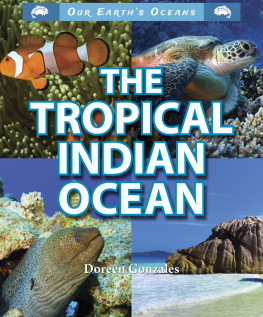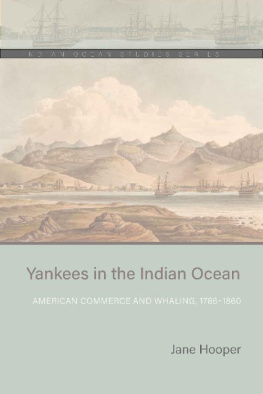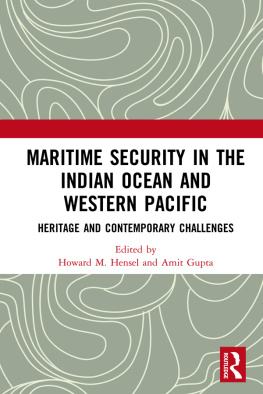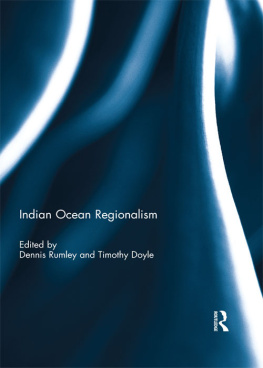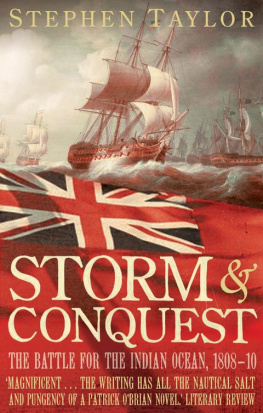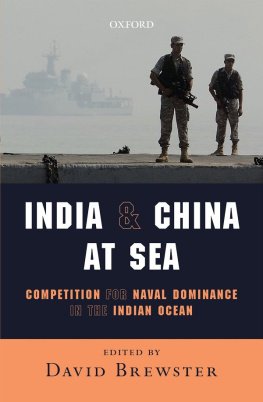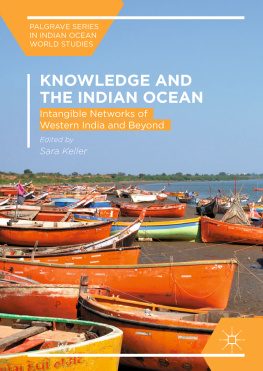GENDERED LIVES IN THE WESTERN INDIAN OCEAN
Indian Ocean Studies Series
Richard B. Allen, series editor
Richard B. Allen, European Slave Trading in the Indian Ocean, 15001850
Erin E. Stiles and Katrina Daly Thompson, eds., Gendered Lives in the Western Indian Ocean: Islam, Marriage, and Sexuality on the Swahili Coast
ADVISORY BOARD MEMBERS
Edward A. Alpers
University of California, Los Angeles, Emeritus
Clare Anderson
University of Leicester
Sugata Bose
Harvard University
Ulbe Bosma
International Institute of Social History, Leiden
Janet Ewald
Duke University
Devleena Ghosh
University of Technology Sydney
Engseng Ho
Duke University
Isabel Hofmeyr
University of the Witwatersrand
Pier M. Larson
Johns Hopkins University
Om Prakash
University of Delhi (emeritus)
Himanshu Prabha Ray
National Monuments Authority, India
Kerry Ward
Rice University
Nigel Worden
University of Cape Town
Markus Vink
SUNY at Fredonia
Gendered Lives in the Western Indian Ocean
Islam, Marriage, and Sexuality on the Swahili Coast
EDITED BY
Erin E. Stiles and Katrina Daly Thompson
OHIO UNIVERSITY PRESS
ATHENS, OHIO
Ohio University Press, Athens, Ohio 45701
ohioswallow.com
2015 by Ohio University Press
All rights reserved
To obtain permission to quote, reprint, or otherwise reproduce or distribute material from Ohio University Press publications, please contact our rights and permissions department at (740) 593-1154 or (740) 593-4536 (fax).
Printed in the United States of America
Ohio University Press books are printed on acid-free paper

25 24 23 22 21 20 19 18 17 16 15 5 4 3 2 1
Cover image: Typical henna decorations prior to Islamic wedding.
(Wikimedia Commons)
Cover design by Beth Pratt
Library of Congress Cataloging-in-Publication Data
Gendered lives in the western Indian Ocean : Islam, marriage, and sexuality on the Swahili Coast / edited by Erin E. Stiles, Katrina Daly Thompson.
pages cm. (Indian Ocean studies series)
Summary: Muslim communities throughout the Indian Ocean have long questioned what it means to be a good Muslim. Much recent scholarship on Islam in the Indian Ocean considers debates among Muslims about authenticity, authority, and propriety. Despite the centrality of this topic within studies of Indian Ocean, African, and other Muslim communities, little of the existing scholarship has addressed such debates in relation to women, gender, or sexuality. Yet women are deeply involved with ideas about what it means to be a good Muslim. In Gendered Lives in the Western Indian Ocean, anthropologists, historians, linguists, and gender studies scholars examine Islam, sexuality, gender, and marriage on the Swahili coast and elsewhere in the Indian Ocean. The book examines diverse sites of empowerment, contradiction, and resistance affecting cultural norms, Islam and ideas of Islamic authenticity, gender expectations, ideologies of modernity, and British education. The books attention to both masculinity and femininity, broad examination of the transnational space of the Swahili coast, and inclusion of research on non-Swahili groups on the East African coast makes it a unique and indispensable resourceProvided by publisher.
Includes bibliographical references and index.
ISBN 978-0-8214-2186-4 (hardback) ISBN 978-0-8214-2187-1 (pb) ISBN 9780-8214-4543-3 (pdf)
1. WomenTanzaniaZanzibarSocial conditions. 2. Muslim womenTanzaniaZanzibarSocial conditions. 3. SexReligious aspectsIslam. [1. Family lifeTanzaniaZanzibar. 2. TanzaniaSocial conditions.] I. Stiles, Erin E. II. Thompson, Katrina Daly, 1975
HQ1798.5.Z8Z3635 2015
305.409678'1dc23
2015026449
ISBN 978-0-8214-4543-3 (e-book)
Contents
KATRINA DALY THOMPSON AND ERIN E. STILES
CORRIE DECKER
ELISABETH MCMAHON
PAT CAPLAN
NADINE BECKMANN
MEGHAN HALLEY
KATRINA DALY THOMPSON
KJERSTI LARSEN
ERIN E. STILES
REBECCA GEARHART
LINDA L. GILES
SUSI KREHBIEL KEEFE
SUSAN F. HIRSCH

Introducing Gender, Sexuality, and Marriage into the Study of Islam in the Western Indian Ocean
KATRINA DALY THOMPSON AND ERIN E. STILES
MUSLIM COMMUNITIES THROUGHOUT the Indian Ocean and beyond have long debated what it means to be a good Muslim. A great deal of recent scholarship on Islam in the Indian Ocean considers debates among Muslims about authenticity, authority, and propriety vis--vis the influence of Islamic reformism and reformers, those groups whose ideology pushes for social re-instatement of what they regard as pure Islam, as it was practiced by the Prophet and his followers, and who are publicly visible in their activism against undue innovative practices (bida). Yet women are deeply involved and impacted by debates about what it means to be a good Muslima label that often hinges on notions of normative gender performance and understandings of appropriate Islamic sexuality that affect both men and women.
Bridging some of these gaps in existing scholarship, the key question this volume asks is how ideologies of normative sexuality and gender are discursively constructed, performed, negotiated, or rejected within and outside marriage. We address this question by considering the gendered experiences and practices of Islam on the westernmost edge of the Indian Ocean, examining debates and changing understandings of what is Islamic with reference to marriage, sexuality, and normative understandings of masculinity and femininity. In this way, we build on a growing body of scholarship in the study of Islam in the Indian Ocean and beyond that considers debates about authenticity, authority, and proper Islamic practice, over time and in response to historical and global forces. In particular, we extend the body of work that considers how these debates play out in the gendered lives of Muslim women and men in other parts of the world through our focus on the Swahili coast.
THE SWAHILI COAST IN THE INDIAN OCEAN
The Swahili coast includes the coast and islands of East Africa that border the Indian Ocean, from southern Somalia to northern Mozambique. It is called the Swahili coast because it is the home to people who speak various dialects of Swahili as their first language, and the name Swahili itself comes from the Arabic word sawhil (sing., shil), meaning coast. Most first-language speakers of Swahili are Muslims.
The Arabic-derived names for Swahili people (Waswahili), Swahili culture (Uswahili), and the Swahili language (Kiswahili) index the long history of interaction between coastal East Africans and other Indian Ocean peoples, including not only Arabs but also Persians, Indians, and other Asians from as far away as China. All these peoples, as well as Europeans who colonized Kenya, mainland Tanzania (then Tanganyika), and eventually Zanzibar, interacted with coastal Swahili speakers and in some cases intermarried with them, creating long-lasting influences not only on the Swahili language but also on the practice of Islam, local systems of governance, law, and education, architecture, food, clothing, and more. Contemporary coastal East Africans continue to interact with the Indian Ocean region through annual trips to Mecca for the




